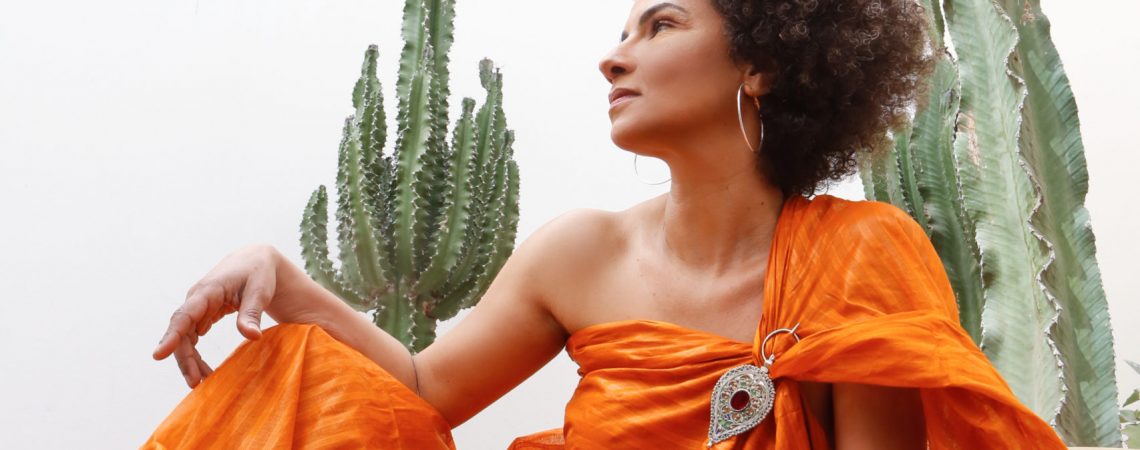
Dakchi – 2024
Daba – 2019
Zarabi – 2015
Soul of Morocco – 2013
True star in Morocco, Oum became known to European audiences through her songs blending traditional North African styles with soul, jazz, and electronic music…
In 2024, the author, composer, and performer celebrates ten years of international career with a live album recorded in Marrakech, revisiting the magic of her three landmark albums, presented here in a new light. This new album, named “Dakchi,” which means “these things,” marks a decade of creation and concerts with her loyal musician companions, as well as a communion with the Moroccan audience that witnessed her beginnings before she embarked on an international career.
“Dakchi” rearranges the most beautiful songs from the albums “Soul Of Morocco,” “Zarabi,” and “Daba,” and also offers three new tracks. Thirteen titles where melodies and polyrhythms intertwine in a purely Marrakech spirit.
After Soul of Morocco in 2013 and Zarabi in 2015, with Daba, her third album, Oum reaches a new milestone. Entrusting the artistic direction to the Palestinian poetess, singer and oud player Kamilya Jubran, she went to Berlin with her musicians to make a record that was both atmospheric and danceable. For Oum, this dual aim reflects a sort of state of emergency, one that she describes as dynamic : to be together and share good times is all the more urgent now that the means of communication and transport tend to radically reshape one’s experience of the world and of the other.
The orchestration on Daba remains generally acoustic, but, for the first time, certain electronic sounds adorn the songs, as if to echo the more contemporary dilemmas reflected in her lyrics; the threat to Nature, the fate of migrants, the status of women, but also an exhortation to live fully in the present. With such themes, Oum positions herself as a Moroccan, an African and a woman of the world who is convinced that cultural barriers are less weighty than that which brings us together.

